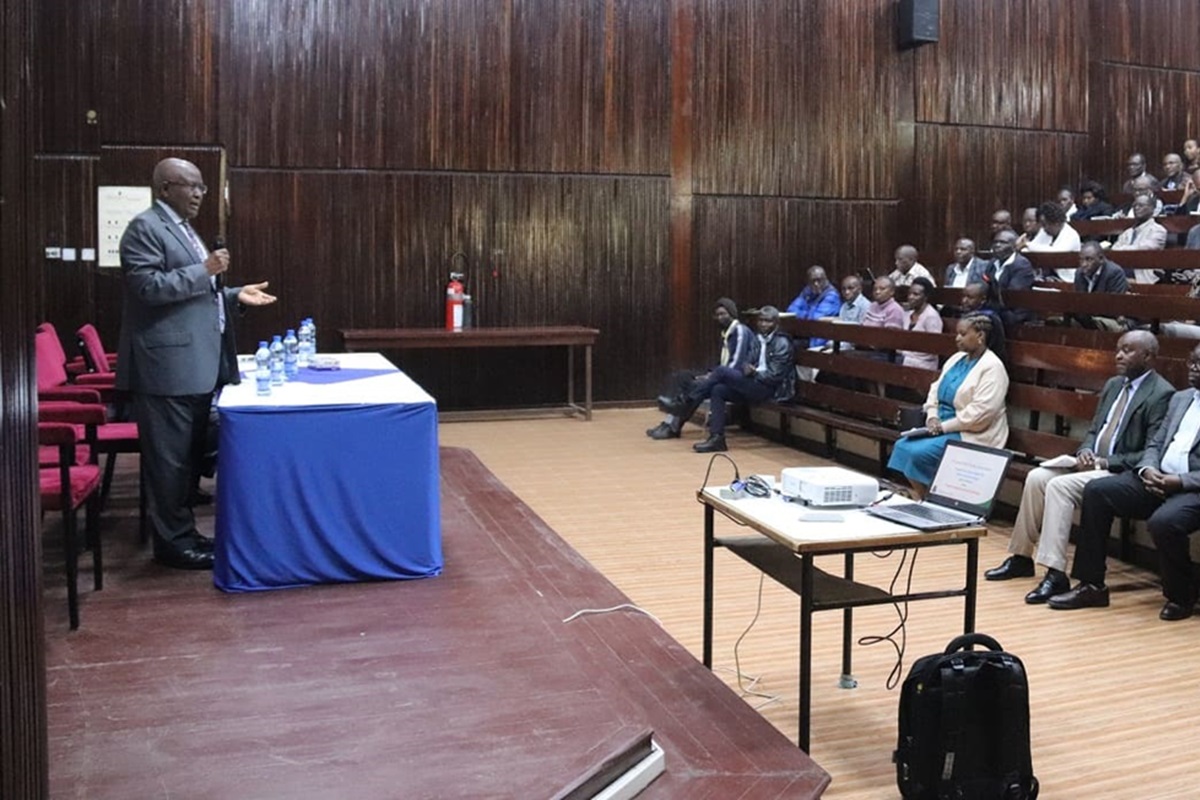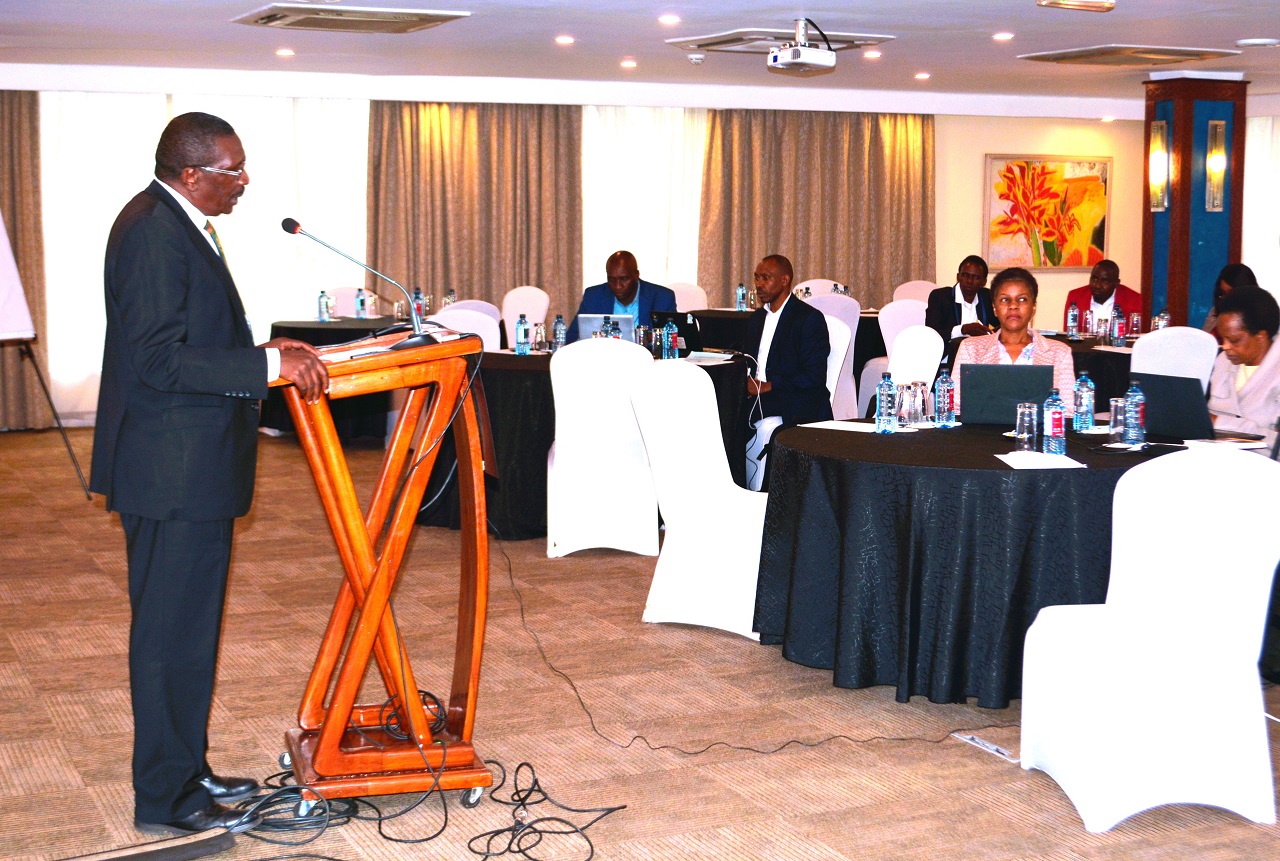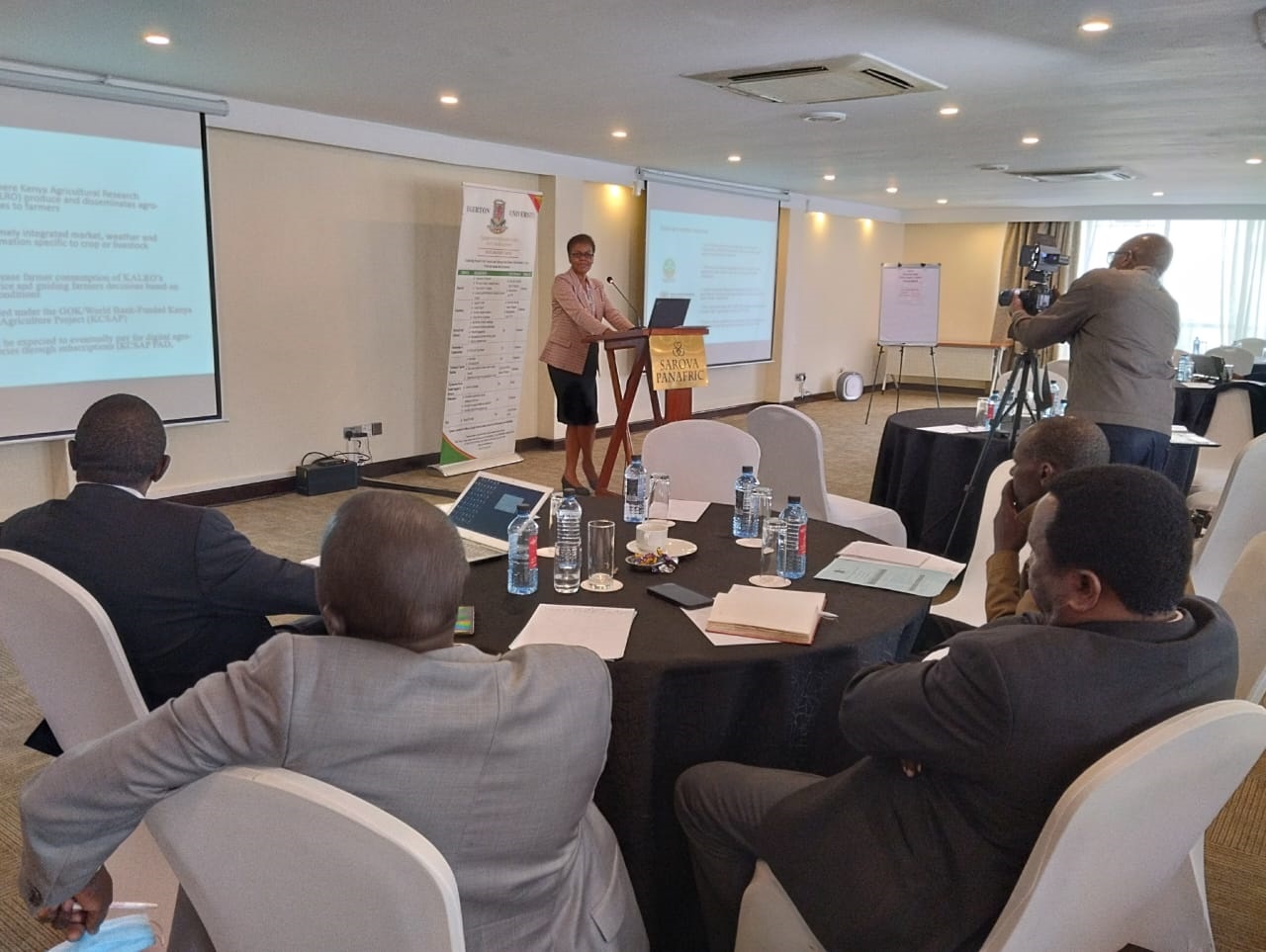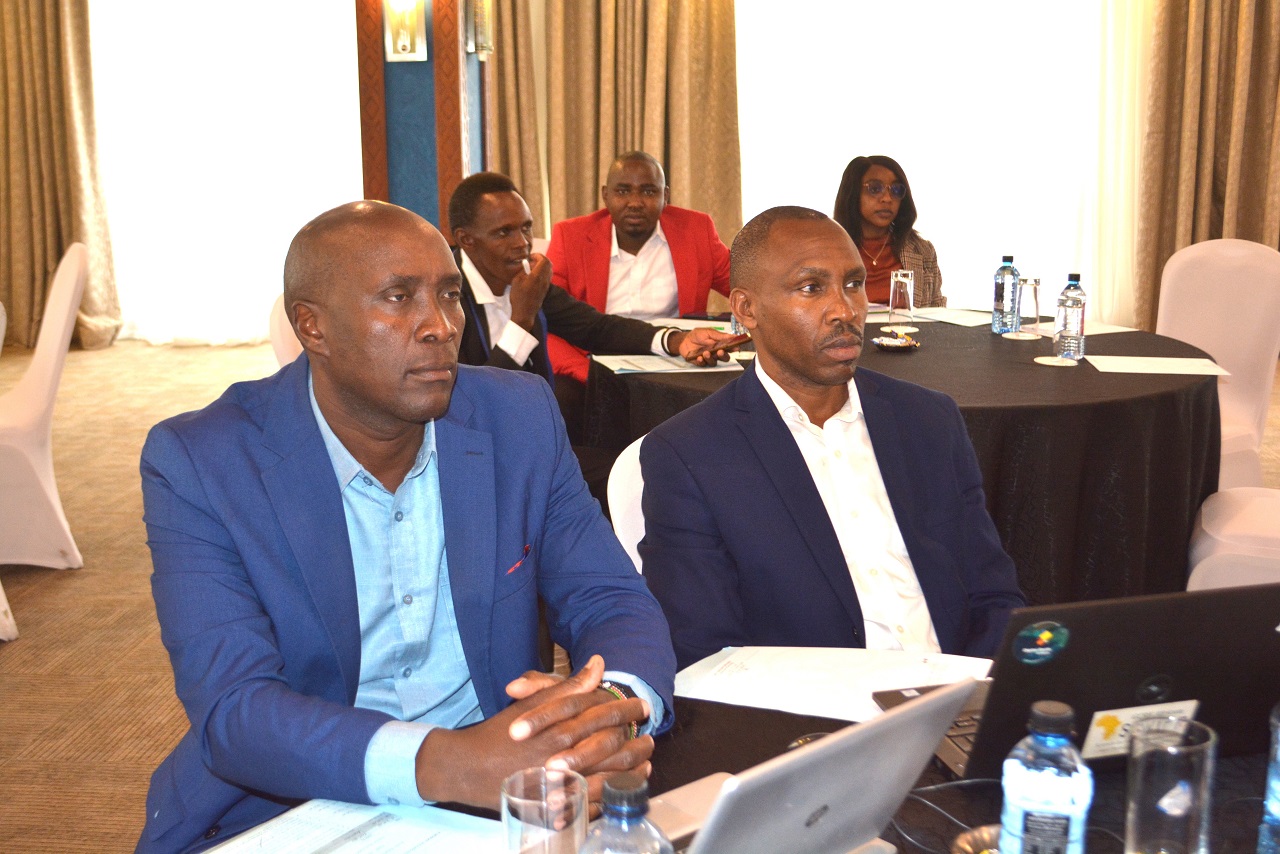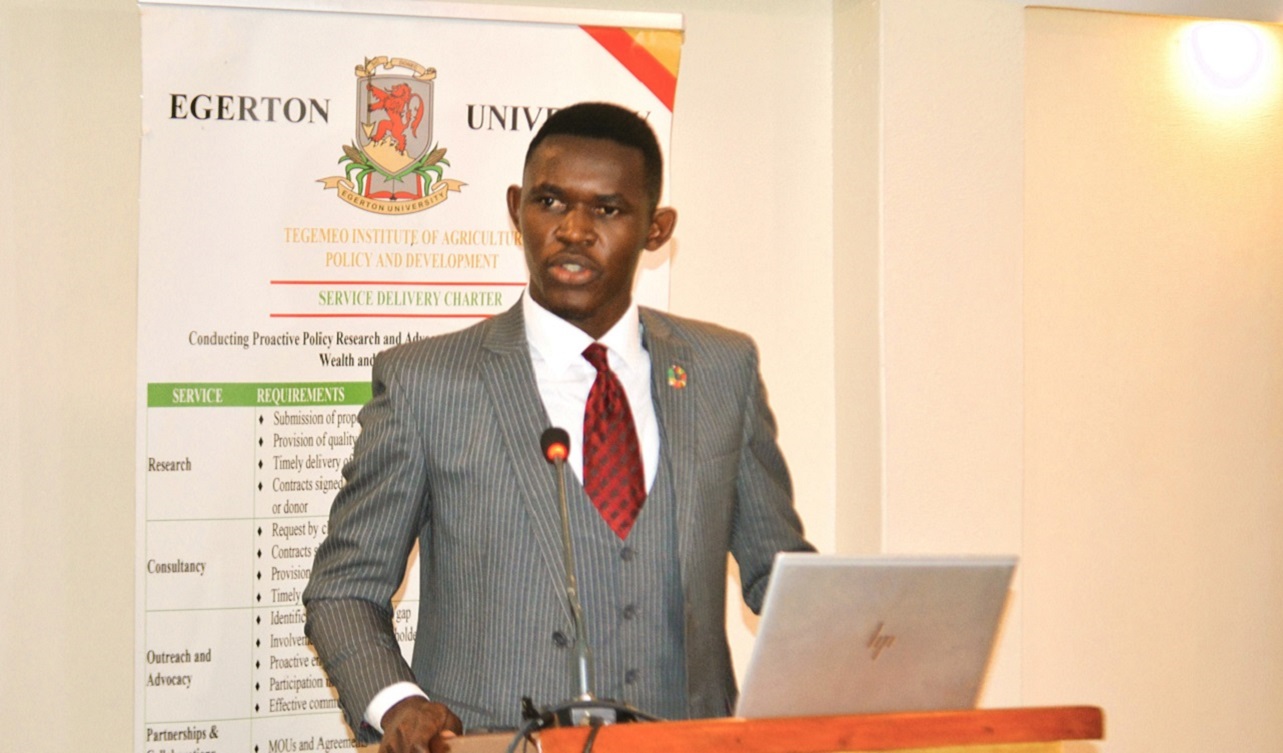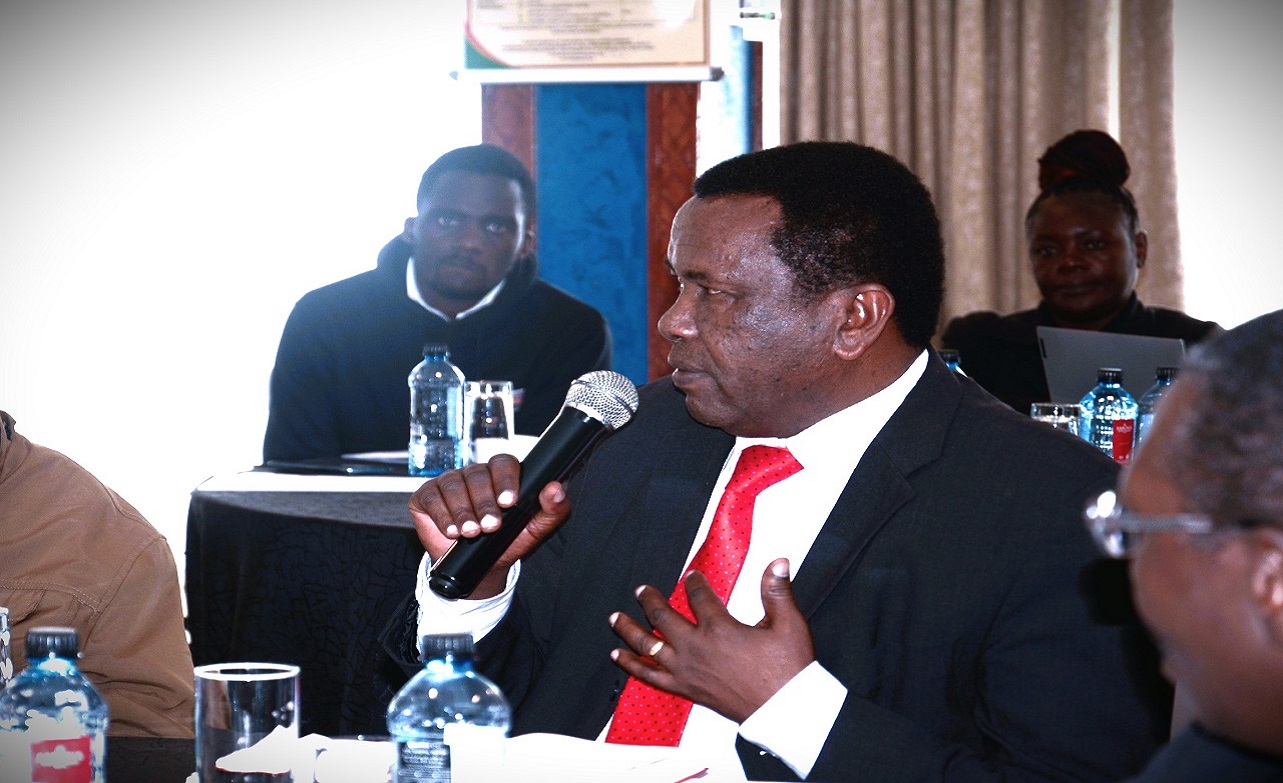Addressing Climate Change Challenges through Innovative Study on Farmer Willingness to Pay
In a significant stride towards combating the adversities of climate change and unpredictable weather conditions, the Tegemeo Institute of Agricultural Policy and Development at Egerton University has undertaken a groundbreaking study aimed at assessing farmers' readiness to invest in agro-weather advisory services.
The study, led by esteemed researchers Dr Mercy Kamau, John Mburu, Dr Lilian Kirimi, and Dr Bradford Mills, delves into the realm of "farmers’ access and willingness to pay for digital agro-weather advisories in high ‘climate risk’ areas in Kenya," marking a pivotal point in agricultural development.
A pivotal half-day stakeholders' meeting convened on August 9th, 2023, at Nairobi's Sarova Panafric Hotel, orchestrated by Tegemeo Institute Director Prof. Gideon Obare, served as the platform to unveil the study's findings and initiate discussions on the implications they carry. The study, conducted under the aegis of the Feed the Future (FtF) Advancing Local Leadership, Innovation, and Networks (ALL-IN) initiative, casts a spotlight on the demand for such services and the viability of their sustainability. Pertinent concerns have emerged in Kenya and neighboring regions regarding the feasibility of weather advisory schemes primarily orchestrated by governmental bodies.
In an informative session, Steve Ogutu, Communications & Partnership Advisor at ICED, provided insights into USAID's Feed the Future partnership, a collaborative endeavor between the Markets, Risks & Resilience Innovation Lab at the University of California, Davis, and ICED. He elucidated on the partnership's endeavor to catalyze agricultural advancements in developing economies, bridging the gap between research and practical application. Ogutu noted, "Host country researchers take the lead in defining research projects, bringing in U.S.-based counterparts for mentorship," exemplifying the cooperation driving 12 ALL-IN research projects led by African research institutions.
Central to the discussions was the institute's use of survey data to unearth critical insights into the demand for agro-weather advisory services among farmers. By assessing the sustainability of subscription-based models, the study also scrutinized the necessity for subsidies or private sector incentives, particularly tailored to specific categories of farmers. Eminent stakeholders from the agricultural sector contributed their perspectives on the potential longevity of agro-weather advisory services. As the discourse surrounding climate change amplifies, these perspectives hold the power to shape the trajectory of weather advisory initiatives and their ancillary support systems.
Climate information services (CIS) have assumed a vital role in mitigating the ramifications of climate change and erratic weather patterns. In many African countries, government or public agencies have offered weather advisory services to smallholder farmers at no cost, primarily due to the dearth of information on demand, influencing factors, and the financial threshold farmers are willing to commit to these services. In Kenya, the prospective implementation of charges for agro-weather advisories through subscription models presents both promise and challenge.
The study has brought to the fore two critical challenges to this implementation: the inherently non-exclusive and non-rivalrous nature of digital weather information and the paucity of data on demand, willingness to pay, and cost thresholds. John Nginyangi, KCSAP National Project Coordinator, hailed the findings related to farmers' willingness to pay for digital agro-weather advisories, a development parallel to the Kenya Agricultural and Livestock Research Organisation's (KALRO) efforts. Nginyangi emphasized the need for enhanced accessibility and affordability of this information.
Drawing from a robust sample of 2,384 farm households exposed to or earmarked for the advisories, the study employed data from the KCSAP baseline survey and long-term local rainfall data. The evaluation of advisories' cost was benchmarked against potential subscription fee revenues, highlighting the intricate interplay of financial sustainability. Through its nuanced approach, the study has filled critical gaps in the literature, proposing apt pricing models and informing debates about subsidies and private sector involvement.
Paul Murage of the Kenya Meteorological Department emphasized the need to augment the capacities of extension officers and adapt to shifting weather patterns. The study also showcased the diversity of farmer responses to payment, with 49% of sampled farmers expressing reluctance, especially those with smaller land holdings. The prospect of a purely privatized agro-weather service surfaced as potentially exclusionary, leading to a call for differentiated pricing mechanisms or subsidies to ensure equitable access.
A profound realization emerged that the objective of agencies behind agro-weather advisories should be widespread dissemination rather than full cost recovery. The collaborative pursuit of reaching maximum users aligns with the non-rivalrous nature of digital weather information. Rita Setey of Mercy Corps shared an illustrative anecdote from Nigerian farmers who struggled with traditional meteorological information dissemination due to technological barriers.
The study's findings echo the demand for agro-weather advisories among Kenyan smallholder farmers, and the determination of costs for these services is not merely a financial calculation but a delicate balance between inclusive access and financial sustainability. As the study navigates these complex dynamics, it remains an instrumental guidepost for steering the evolution of agro-weather advisory services in Kenya and beyond.
Written by: By Kurian Musa
Communication Officer
Egerton University
Email: This email address is being protected from spambots. You need JavaScript enabled to view it. / This email address is being protected from spambots. You need JavaScript enabled to view it.
Note: This research study is conducted under the aegis of the USAID Agreement Number AID-OAA-L-12-00001, awarded to The Regents of the University of California for the MRR Innovation Lab and subcontracted to Tegemeo Institute of Agricultural Policy and Development, Egerton University. The contents do not necessarily reflect the stance or policies of the U.S. Government, USAID, or the University, and no official endorsement should be inferred.






